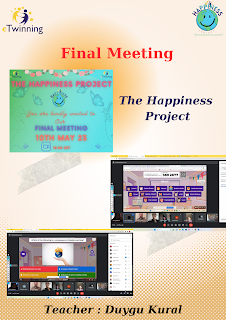Empathy: A Key Skill for Connection and Understanding
Empathy is the ability to understand and share the feelings of others. It's a crucial skill for building relationships, both personal and professional, and for creating a sense of community. When we are able to put ourselves in someone else's shoes, we are better able to connect with them and build a rapport that can lead to deeper understanding and mutual respect.
Empathy has been studied extensively by psychologists and researchers who have found that it's not just a nice-to-have skill, but a fundamental building block of healthy relationships. In fact, studies have shown that people who are more empathetic tend to be more successful in both their personal and professional lives.
One reason for this is that empathy helps to create a sense of trust between people. When we feel that someone else understands us and can relate to what we're going through, we are more likely to feel comfortable opening up to them and sharing our thoughts and feelings. This is why empathy is such an important skill for therapists, counselors, and other professionals who work with people in a helping capacity.
Another benefit of empathy is that it helps us to be more accepting and non-judgmental of others. When we are able to see things from someone else's perspective, we are less likely to jump to conclusions or make assumptions about them. This can be especially important when working with people from different cultural backgrounds or with different life experiences than our own.
Empathy also plays an important role in conflict resolution. When we are able to see things from someone else's point of view, we are better able to find common ground and work towards a mutually beneficial solution. This can be especially important in the workplace, where conflicts can arise over issues such as workload, communication, or different approaches to problem-solving.
So, how can we cultivate empathy in our own lives? One way is to practice active listening. This means giving someone our full attention when they are speaking, without interrupting or trying to offer solutions. It also means asking questions and clarifying what the other person is saying, rather than making assumptions.
Another way to cultivate empathy is to practice self-reflection. This means taking the time to think about our own feelings and experiences, and how they might relate to someone else's. It also means being aware of our own biases and assumptions, and working to challenge them when they are getting in the way of our ability to connect with others.
In conclusion, empathy is a key skill for building connection and understanding with others. By practicing active listening, self-reflection, and an open-minded approach to others, we can cultivate this important skill in our own lives and reap the benefits of deeper relationships and a more connected community.
References:
- Davis, M. H. (1983). Measuring individual differences in empathy: Evidence for a multidimensional approach. Journal of personality and social psychology, 44(1), 113-126.
- Gerdes, K. E., & Segal, E. A. (2011). Importance of empathy for social work practice: Integrating new science. Social work, 56(2), 141-148.
- Karakas, F. (2010). Toward a theory of high-quality connections in organizations. Human Resource Development Review, 9(2), 176-197.
- Konrath, S. H., O'Brien, E. H., & Hsing, C. (2011). Changes in dispositional empathy in American college students over time: A meta-analysis. Personality and Social Psychology Review, 15(2), 180-198.



Comments
Post a Comment